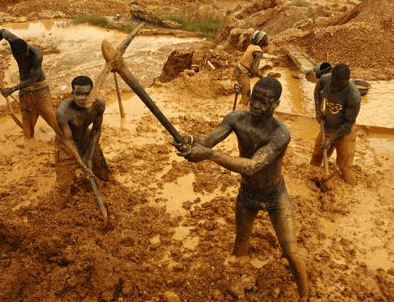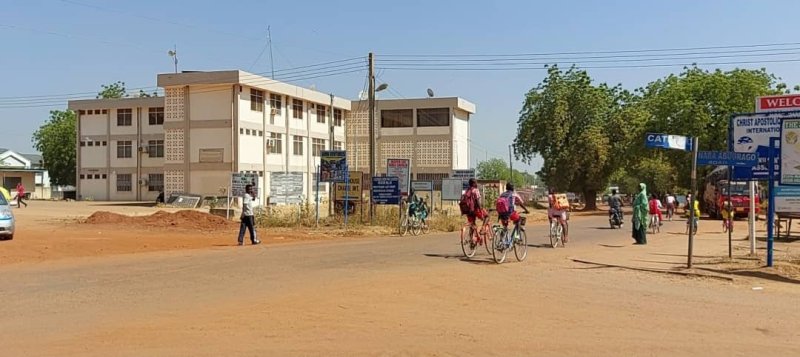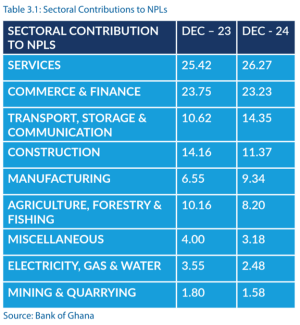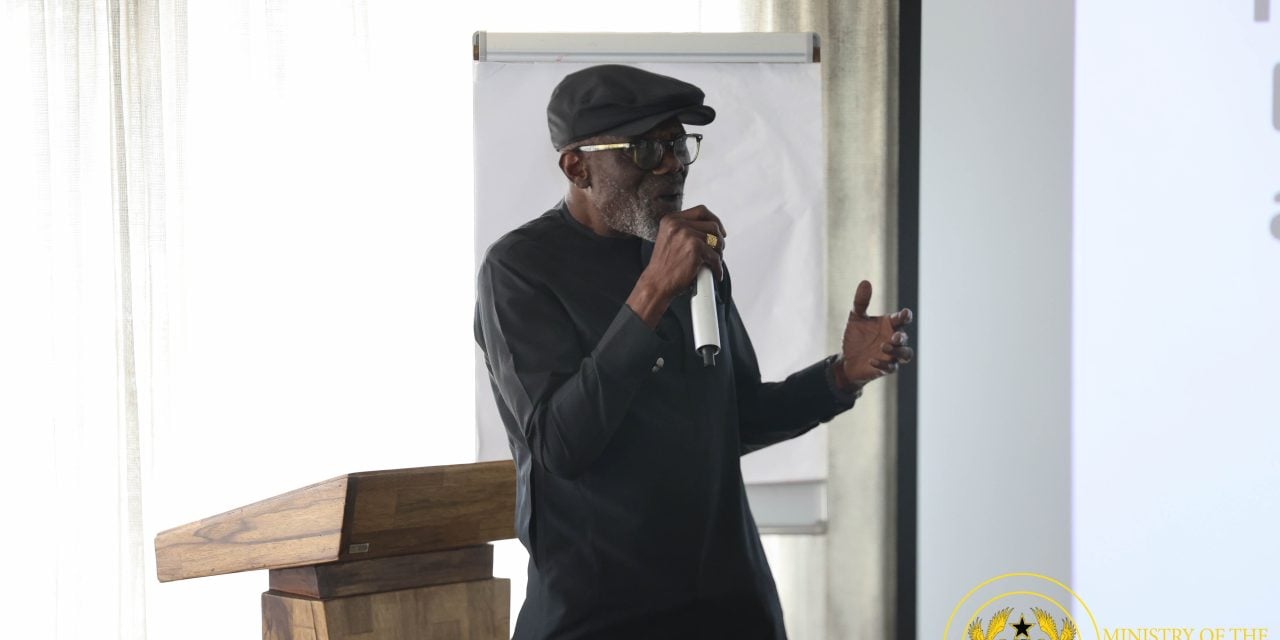
In part II, we noted that education plants the seeds of potential, but leadership provides the climate in which they grow. In Africa, a crisis of leadership has become a crisis of values. Corruption, cronyism, and materialism have tainted both public service and private enterprise, shaping generations to equate success with acquisition rather than contribution.
In the third and final part, we hold that efforts to improve human resources in Africa have limited impact. That is because no matter the advancements in technology, infrastructure, or economic growth, development without a strong moral foundation is not sustainable. Building development on a foundation of virtues that support both economies and societies is crucial for our time and future generations.
Leadership Crisis and the Moral Collapse of Human Capital
Leadership—whether political, economic, spiritual, or educational—is the compass by which the youth orient their values, aspirations, and actions. In both ‘developed’ and ‘developing’ economies, the leadership vacuum has resulted in a generation of youth being shaped more by scandal than by integrity, by materialism rather than morality. This has deeply compromised the quality of human resources being developed today and into the future.
In Ghana, political leadership is often marred by corruption, cronyism, and the pursuit of personal gain over public service. According to the Afrobarometer Survey (2022), over 85% of Ghanaians believe corruption is either “somewhat” or “very much” widespread in government. This perception is not unfounded. Numerous high-profile scandals involving embezzlement, procurement breaches, and abuse of power have shaken public trust, particularly among the youth. When the supposed custodians of national development are implicated in acts of dishonesty and moral compromise, what message does that send to young people aspiring to lead?
As Professor Emmanuel Gyimah-Boadi, co-founder of the Ghana Center for Democratic Development (CDD-Ghana), has warned: “The greatest threat to democracy in Africa is not military coups, but the corrosion of ethics and accountability in everyday governance.” In such an environment, the youth are either disillusioned or become imitators of corrupt practices, believing that success in politics or public life must come at the expense of principle.
The business world offers little better. From inflated contracts to tax evasion, many high-ranking business leaders have proven unworthy of emulation. Instead of mentoring the youth into ethical entrepreneurship, they project a “get-rich-by-any-means” mentality that rewards cunning over competence. The result is a generation more interested in “shortcuts” and “connections” than innovation and hard work. The World Bank’s 2023 Africa Pulse Report highlights this concern, noting that “rising youth unemployment and disillusionment with leadership are driving many young Africans into the informal economy or irregular migration.”
Meanwhile, other traditional moral anchors—parents, teachers, and religious leaders—are also failing to provide consistent guidance. Economic pressures have left many parents with little time or energy for value-based parenting. Teachers, underpaid and undervalued, are demotivated. And many religious leaders, instead of promoting integrity, have become celebrities and prosperity preachers, sometimes entangled in their own scandals. As Professor Kwame Gyekye notes in “African Cultural Values”, “The collapse of moral leadership within the family and community structure is one of the greatest challenges of modern African society.”
Without principled, authentic leadership to look up to, the youth are left to craft their values from social media, music videos, and peer influence. In the absence of role models who embody ethical leadership and social responsibility, what kind of human resources are we producing? Can we expect these youth—raised on a steady diet of corruption, compromise, and commodification of success—to build just, accountable, and visionary institutions?
The implications for Africa’s development are severe. Human capital is not merely about technical skills or education levels; it includes moral character, civic responsibility, and emotional intelligence. If these are eroded, then no matter how well-trained a population may be, it will lack the moral infrastructure to support genuine development.
To reverse this trend, Africa must initiate a values-based leadership revolution—one that cuts across politics, business, religion, education, and the family. This includes:
- Reinstituting civic and moral education at all levels of schooling,
- Holding public officials accountable through strong legal and social institutions,
- Reinvesting in the dignity of teaching and parenting, and
- Elevating ethical role models in media and public discourse.
As the African Union Agenda 2063 reminds us, “Africa’s renaissance depends not just on the quality of its infrastructure, but on the integrity and vision of its people.” For Ghana and Africa to develop human resources fit for sustainable development, we must rebuild leadership from the ground up—beginning with moral clarity and courage.
Rethinking Human Capital in Africa
Learning from western hegemony, in Ghana and across much of the African continent, the dominant narrative of success—power, wealth, prestige, and fame—has deeply shaped the aspirations of the youth and the culture of work. This narrative, influenced by what some scholars term “Darwinian Economics,” promotes survival of the fittest, individual gain at all costs, and the commodification of human value. It is no surprise, then, that youth entering the workforce often do so not with a sense of service or purpose, but with a singular drive for personal advancement. The ripple effects of this value system—dishonesty, mediocrity, stifled creativity, and unethical behavior—have become endemic, ultimately undermining productivity and the sustainability of development.
According to Professor Patrick Loch Otieno Lumumba, a renowned Kenyan legal scholar and Pan-Africanist, “Africa’s greatest tragedy is not the lack of resources, but the miseducation of her people, especially in leadership and morality.” Leadership, he argues, has adopted the worst excesses of the global neoliberal model—where personal ambition trumps public service. The African youth, exposed to this through politics, media, and education, internalize these values early on. Their heroes are not those who serve but those who acquire: celebrities, tycoons, political strongmen.
In Ghana, it is generally acknowledged that human capital development is a cornerstone of development. Yet, despite countless interventions—skills training, entrepreneurship funding, educational reform—there is a gap between competency and character. As UNDP Ghana stated in a 2023 report on youth employment, “The quality of human capital is not only about knowledge and skills but also about work ethics, innovation, and social values.” These are precisely the areas being corroded by a value system rooted in self-interest and external validation.
Quick-fix interventions—training schemes, job creation programs, and start-up capital distributions—are necessary, but they remain insufficient if the moral and ideological foundation of society remains flawed. Leaders may equip the youth with technical skills, but if their underlying motivation is material gain, the outcome is short-lived growth, corruption, and inequality. In such a society, cheating becomes a strategy, shortcuts replace hard work, and ends justify means.
The problem, then, is not just policy or planning. It is foundational. When a society glorifies selfish ambition and ridicules virtues such as honesty, contentment, humility, and altruism, it cannot expect to develop a human resource base capable of building a just and prosperous economy. In fact, as Dr. Emmanuel Asante, former chairman of Ghana’s National Peace Council, once said: “Without moral capital, human capital becomes a danger to society.”
This is the uncomfortable truth many are unwilling to confront: the current economic and educational systems are designed to produce functional individuals, not moral citizens. The idea that love, respect, or humility should drive productivity seems laughable in today’s competitive climate. Yet these are the very virtues that build trust, cooperation, and resilience—pillars of any thriving economy.
If the purpose of education and work were realigned with these values, the transformation would be profound. Schools would focus not just on exam performance but on civic responsibility and emotional intelligence. Workplaces would reward integrity and creativity, not just output. Political leaders would be measured by their service and vision, not their wealth or influence.
But who will begin this revolution? It calls for courage, for a new generation of leaders—political, educational, religious, and community-based—willing to redefine what success means. It demands a bold reimagining of economic policy that centers humanity, not just profitability. And it requires the cultural space to lift up stories of service, simplicity, and sacrifice—not just riches and recognition.
Until then, Africa’s efforts to improve human resources will yield limited results. For no matter how advanced our technology, how modern our infrastructure, or how robust our growth rates may appear, without a moral foundation, development will remain hollow. It is time we built our development on the rock of virtues that sustain not only economies, but nations.
Africa’s development will not come from mimicry or market metrics, but from nurturing whole human beings—formed by family, guided by ethics, educated in truth, and led by principle. It is time to reject hollow development and begin a renaissance rooted in virtue. Only then can Africa fulfill the vision of Agenda 2063 and build nations that are just, resilient, and truly prosperous.
Please let’s interact: 1 (914) 259-0242

The author is a dynamic entrepreneur and the Founder and Group CEO of Groupe Soleil Vision, made up of Soleil Consults (US), LLC, NubianBiz.com and Soleil Publications. He has an extensive background In Strategy, Management, Entrepreneurship, Premium Audit Advisory, And Web Consulting. With professional experiences spanning both Ghana and the United States, Jules has developed a reputation as a thought leader in fields such as corporate governance, leadership, e-commerce, and customer service. His publications explore a variety of topics, including economics, information technology, marketing and branding, making him a prominent voice in discussions on development and business innovation across Africa. Through NubianBiz.com, he actively champions intra-African trade and technology-driven growth to empower SMEs across the continent?.
The post The Business Strategy Analyst with Jules Nartey-Tokoli: Rethinking development through the lenses of family, youth, education, and authentic leadership in Africa (III) appeared first on The Business & Financial Times.
Read Full Story

















Facebook
Twitter
Pinterest
Instagram
Google+
YouTube
LinkedIn
RSS